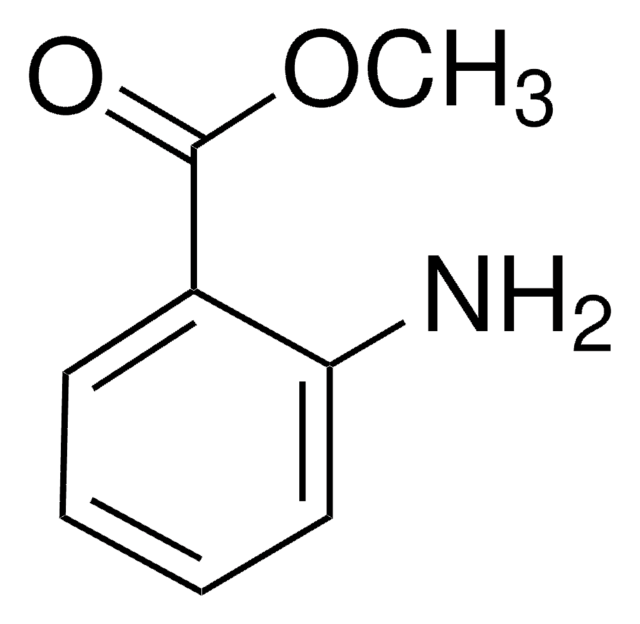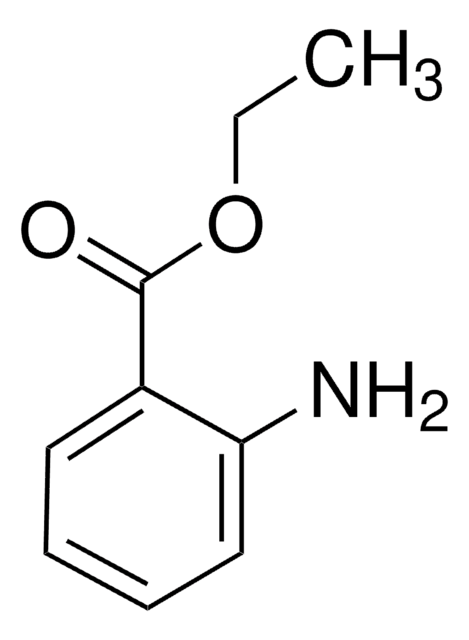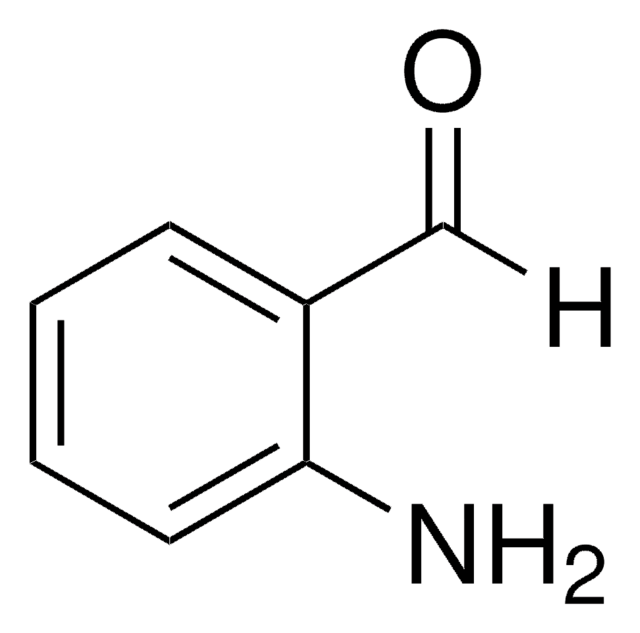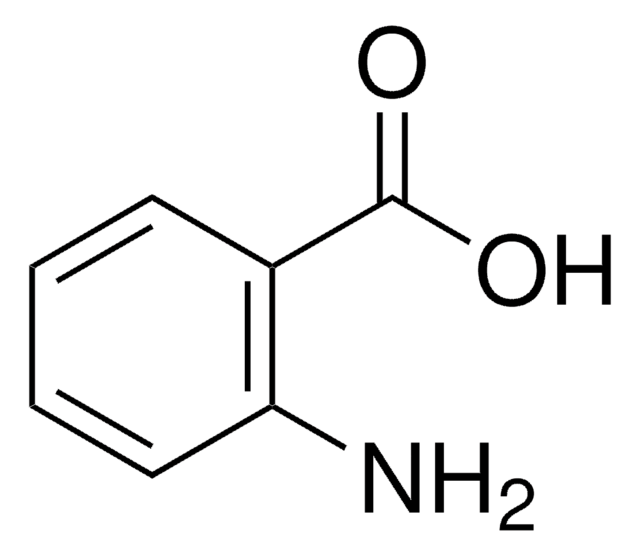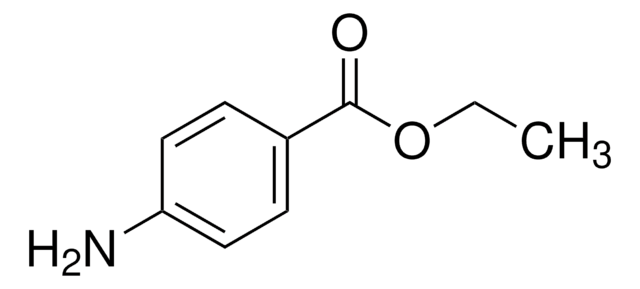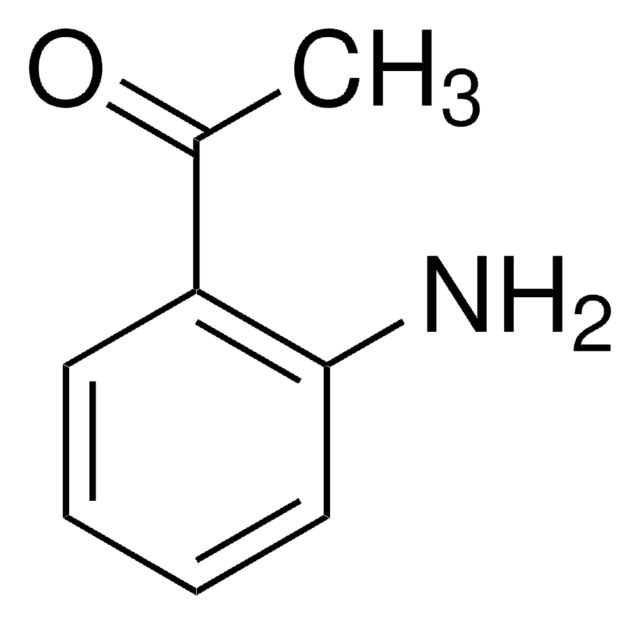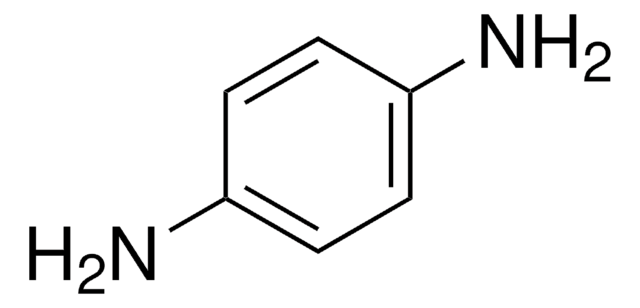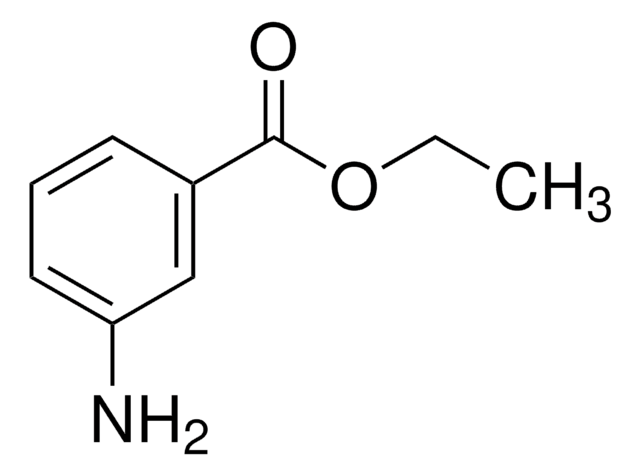236454
2-aminobenzoate de méthyle
ReagentPlus®, ≥99%
Synonyme(s) :
Methyl anthranilate
About This Item
Produits recommandés
Pression de vapeur
1 mmHg ( 20 °C)
Niveau de qualité
Gamme de produits
ReagentPlus®
Essai
≥99%
Forme
liquid
Température d'inflammation spontanée
986 °F
Indice de réfraction
n20/D 1.582 (lit.)
pb
256 °C (lit.)
Pf
24 °C (lit.)
Solubilité
alcohol: freely soluble(lit.)
diethyl ether: freely soluble(lit.)
water: slightly soluble(lit.)
Densité
1.168 g/mL at 25 °C (lit.)
Groupe fonctionnel
ester
Chaîne SMILES
COC(=O)c1ccccc1N
InChI
1S/C8H9NO2/c1-11-8(10)6-4-2-3-5-7(6)9/h2-5H,9H2,1H3
Clé InChI
VAMXMNNIEUEQDV-UHFFFAOYSA-N
Vous recherchez des produits similaires ? Visite Guide de comparaison des produits
Description générale
Application
Informations légales
Vous ne trouvez pas le bon produit ?
Essayez notre Outil de sélection de produits.
Mention d'avertissement
Warning
Mentions de danger
Conseils de prudence
Classification des risques
Eye Irrit. 2
Code de la classe de stockage
10 - Combustible liquids
Classe de danger pour l'eau (WGK)
WGK 1
Point d'éclair (°F)
262.4 °F - closed cup
Point d'éclair (°C)
128 °C - closed cup
Équipement de protection individuelle
Eyeshields, Gloves, type ABEK (EN14387) respirator filter
Faites votre choix parmi les versions les plus récentes :
Déjà en possession de ce produit ?
Retrouvez la documentation relative aux produits que vous avez récemment achetés dans la Bibliothèque de documents.
Les clients ont également consulté
Notre équipe de scientifiques dispose d'une expérience dans tous les secteurs de la recherche, notamment en sciences de la vie, science des matériaux, synthèse chimique, chromatographie, analyse et dans de nombreux autres domaines..
Contacter notre Service technique